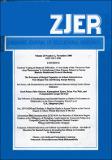| dc.contributor.author | Peltzer, Karl | |
| dc.contributor.author | Shisana, Olive | |
| dc.contributor.author | Zuma, Khangelani | |
| dc.contributor.author | Van Wyk, Brian | |
| dc.contributor.author | Zungu-Dirwayi, Nompumelelo | |
| dc.coverage.spatial | South Africa. | en |
| dc.date.accessioned | 2015-09-11T13:44:47Z | |
| dc.date.available | 2015-09-11T13:44:47Z | |
| dc.date.issued | 2008-11 | |
| dc.identifier.citation | Peltzer, K. et al., (2008) Job Stress, Job Dissatisfaction and Stress Related Illnesses among South African Educators. Zimbabwe Journal of Educational Research (ZJER), vol. 20, no.3, (pp. 287-316). UZ, Mt. Pleasant, Harare: HRRC. | en |
| dc.identifier.issn | 1013-3445 | |
| dc.identifier.uri | https://opendocs.ids.ac.uk/opendocs/handle/20.500.12413/6954 | |
| dc.description | A ZJER study on job dissatisfaction and job related stress amongst South African educators. | en |
| dc.description.abstract | The aim of this study was to explore the relationship between self-reported job stress and job dissatisfaction and the prevalence of stress related illnesses and risk factors amongst educators. A cross-sectional survey was conducted in a representative sample of21,307 educators from public schools in South Africa. Self-reported measures of job stress, job satisfaction, and stress-related illnesses (including mental distress) were taken. HIV-antibody tests (ELIZA) and CD-4 count was taken from those educators who agreed to blood specimens. Results indicate that the prevalence of stress-related illnesses were 15.6% for hypertension, 9.1% stomach ulcer, 4.5% diabetes, 3.9% major mental distress, 3.8% minor mental distress, and 3.5% asthma. The study found considerably high stress levels among educators. Job stress was weakly associated with seven out of ten stress related illnesses but none was significant considering effect size calculations. Stress from teaching methods seemed to have higher impact on stress related illnesses than other components of the job stress scale. From three components of the demand-control model two, namely work stress from teaching methods and the educational system, but not low peer support was related to heart disease. The components of the effort-reward model of low socio-economic status and lack of career advancement were both not related to heart disease and only lack of career advancement was inversely related to Hypertension. Most components assessed here of the demand-control model (including stress with teaching methods and educational system, low peer support) and effort- reward model (including job insecurity and lack of career advancement) were related to stomach ulcer and mental distress. It is recommended that changes to the organization of work with particular attention being paid to increasing control and reward conditions be implemented and stress management may be included in work health programmes for educators.
Key words: Job stress; job dissatisfaction; risk behaviours; stress-related illnesses; public educators; South Africa | en |
| dc.language.iso | en | en |
| dc.publisher | Human Resource Research Centre (HRRC) , University of Zimbabwe (UZ.) | en |
| dc.rights.uri | http://creativecommons.org/licenses/by-nc-nd/3.0/ | en |
| dc.subject | Education | en |
| dc.subject | Work and Labour | en |
| dc.title | Job Stress, Job Dissatisfaction and Stress Related Illnesses among South African Educators | en |
| dc.type | Article | en |
| dc.rights.holder | University of Zimbabwe (UZ) | en |


